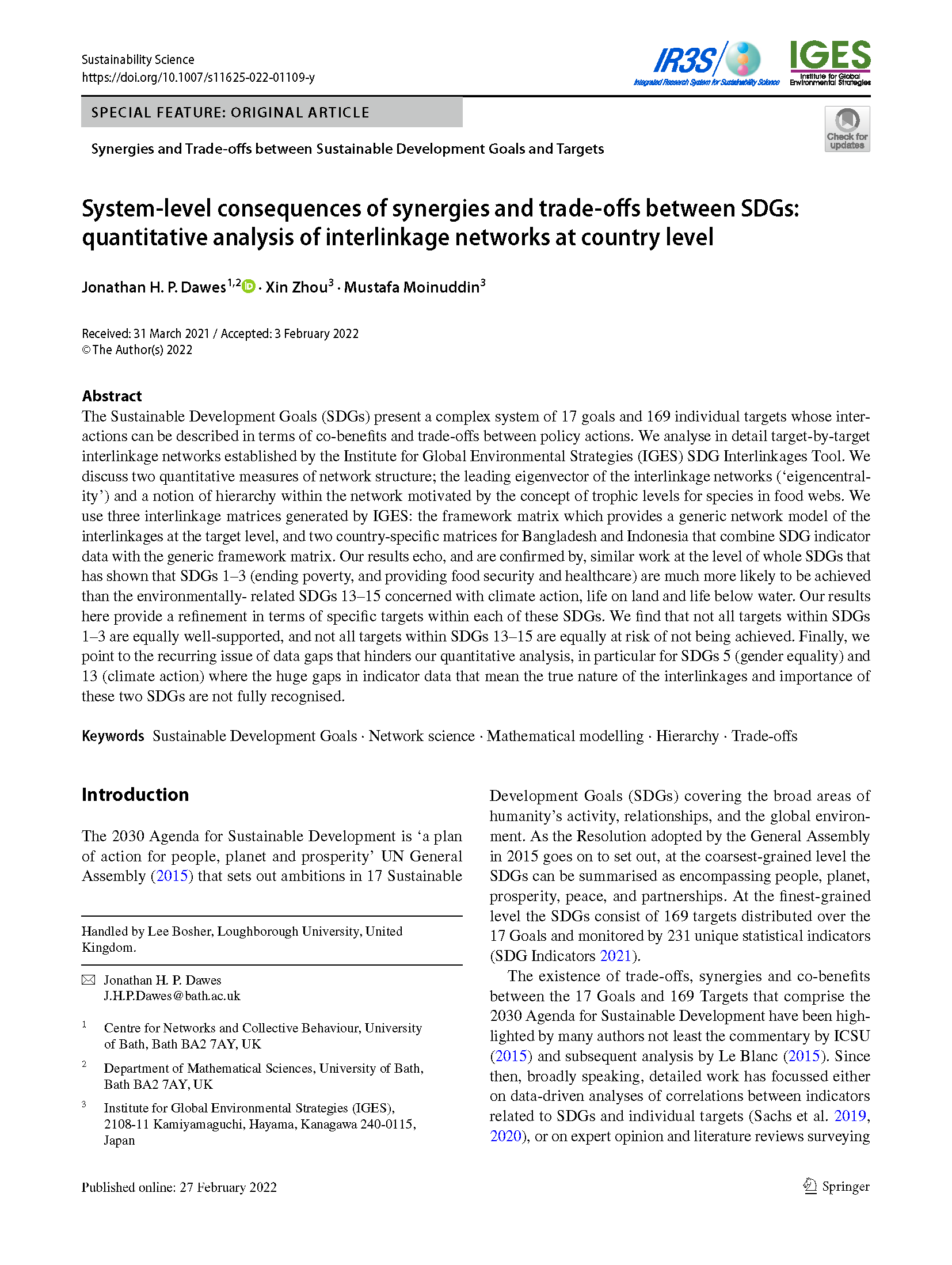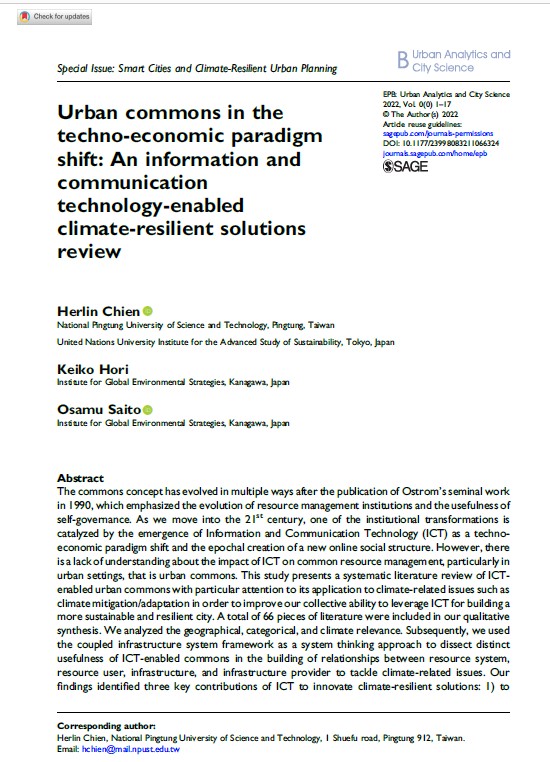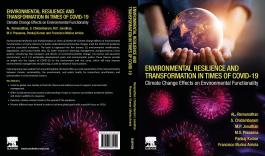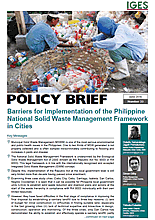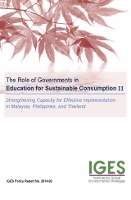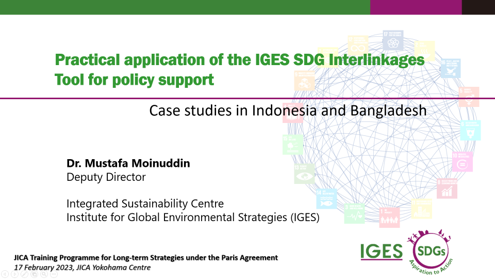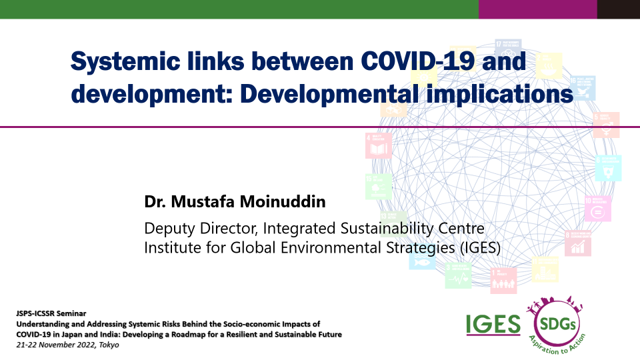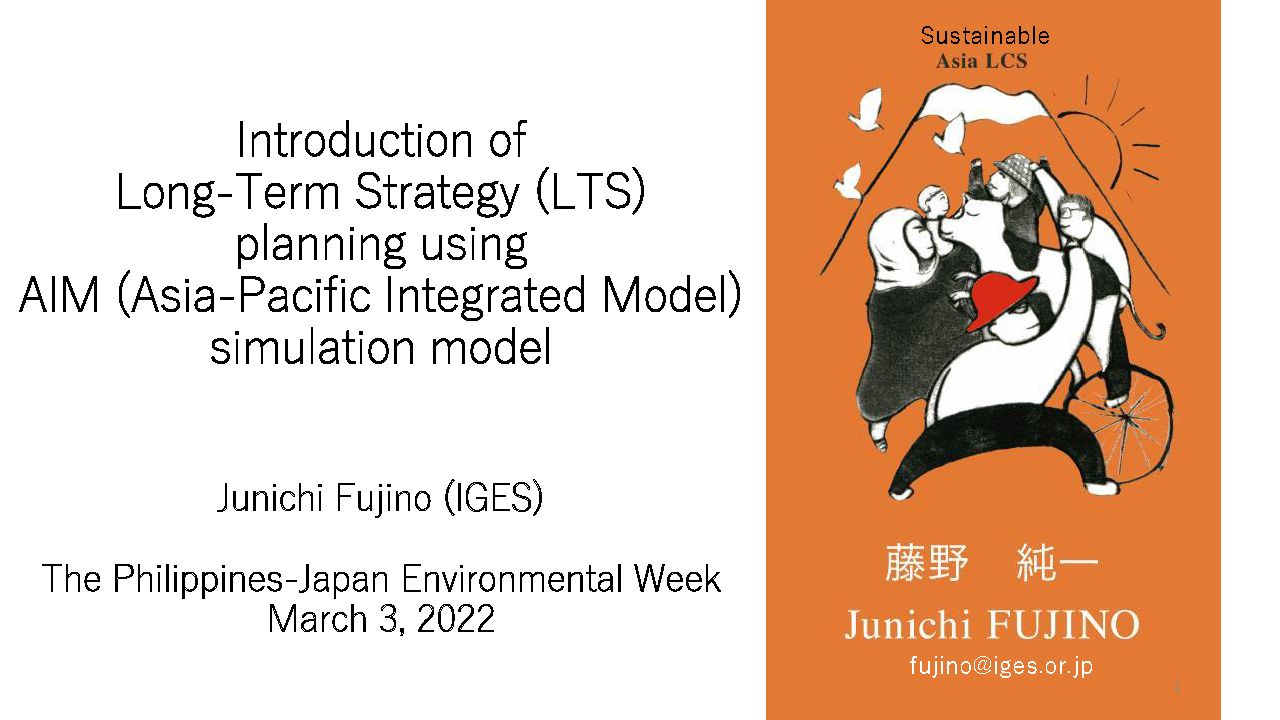In Sustainability Science
The Sustainable Development Goals (SDGs) present a complex system of 17 goals and 169 individual targets whose interactions can be described in terms of co-benefits and trade-offs between policy actions. We analyse in detail target-by-target interlinkage networks established by the Institute for Global Environmental Strategies (IGES) SDG...

